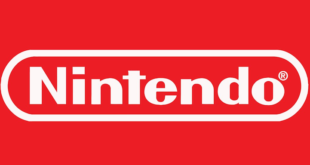As the game development sector’s ecosystem grows increasingly intricate, so does the law that underpins it. To make things a little clearer, Will Freeman spoke to Brand Protect barrister Bernard Whyatt about the bewildering world of IP protection…
The world of legal terminology is perennially confusing for many game developers. With pressing deadlines and bugs to fix, there’s little time left to spend catching up with the latest changes to the myriad laws that affect the creative, technological and media industries.
Things are made no easier by the constant flux of local and international legalese, but one area – namely intellectual property law – is so significant to games development that a fundamental understanding is absolutely essential. To make that task easier, firms like Brand Protect exist, offering tailoured support for the games industry that strives to provide a value for money, easy to use IP-focused service.
A Brand Protect barrister, Bernard Whyatt is a man who speaks the language of law fluently, but fortunately for developers, he also understands the tongue of the layman. As such, he is a font of practical advice, and a champion of the need to trademark the fruits of your labour.
THE LETTER OF THE LAW
“Registration of a game’s title helps to involve authorities more quickly,” offers Whyatt. “Trademarks protect against counterfeiting, as well as other developers using similar names to the games that you are developing, who try to use the reputation developed by the owner of the game and thereby confuse the public.
“Trademarks also add value to your business. It is problematic to license IP that is not registered. Once a title is registered then it can be licensed – in part or full – mortgaged, charged and even sold.”
The reality is that most developers know they should invest time and the reasonably small cost in registering their IP, but with the actual impact of the pitfalls of unprotected works a relative mystery, for many – trademarks and related protection are a last minute thought.
Whyatt is quick to warn that trademark registering is an essential process: “No one needs to register the name of a game, but not to do so leaves a hostage to fortune.
“If you decide not to register your games titles then in order to protect those titles you need to rely on the tort of passing-off. In order to prove passing-off, the owner bears the burden of proof in every aspect of the action. When a lawyer says this to you, think money. You need to prove every aspect of the case. Contrast this with a trademark infringement action where in certain circumstances the trademark owner merely needs to prove the existence of the right for the court to find in his favour.”
The truth of the matter is that for a modest three-figure sum, you can protect your IP for a decade, or save £200 over ten years, and run the risk of funding an ugly legal battle.
As if that weren’t enough for developers to worry about, trademark ownership is increasingly becoming an international competition, as Whyatt highlights: “The Japanese developers are becoming more aggressive in the way that they want to own intellectual property in the UK and in Europe. Developers must plan to protect and promote their intellectual property here
and abroad.”
A TWO-WAY STREET
Studios nervous about the pressure to understand legal parlance and systems may take solace in the fact that the need to learn constantly is a two-way process. The rapid diversification of the development sector is a constant challenge to the legal professionals charged with representing video game
IP owners.
“The legal industry changes at its own inimitable pace,” reveals Whyatt, who admits that legal process with regard to IP is often slowly responsive, rather than proactive.
IP law’s precedent-led approach to catering for developing industries typically relies on analogy, using the details of previous relevant cases to apply and set new standards. That means lawyers are pitched in a constant struggle to catch-up.
Still, with Brand Protect and its contemporaries keeping a close eye on the games industry, and developers increasingly conscious of the merits of legal support, the future looks bright for those looking to protect the results of their time, effort and creative energy.
www.brandprotect.com

 MCV/DEVELOP News, events, research and jobs from the games industry
MCV/DEVELOP News, events, research and jobs from the games industry



